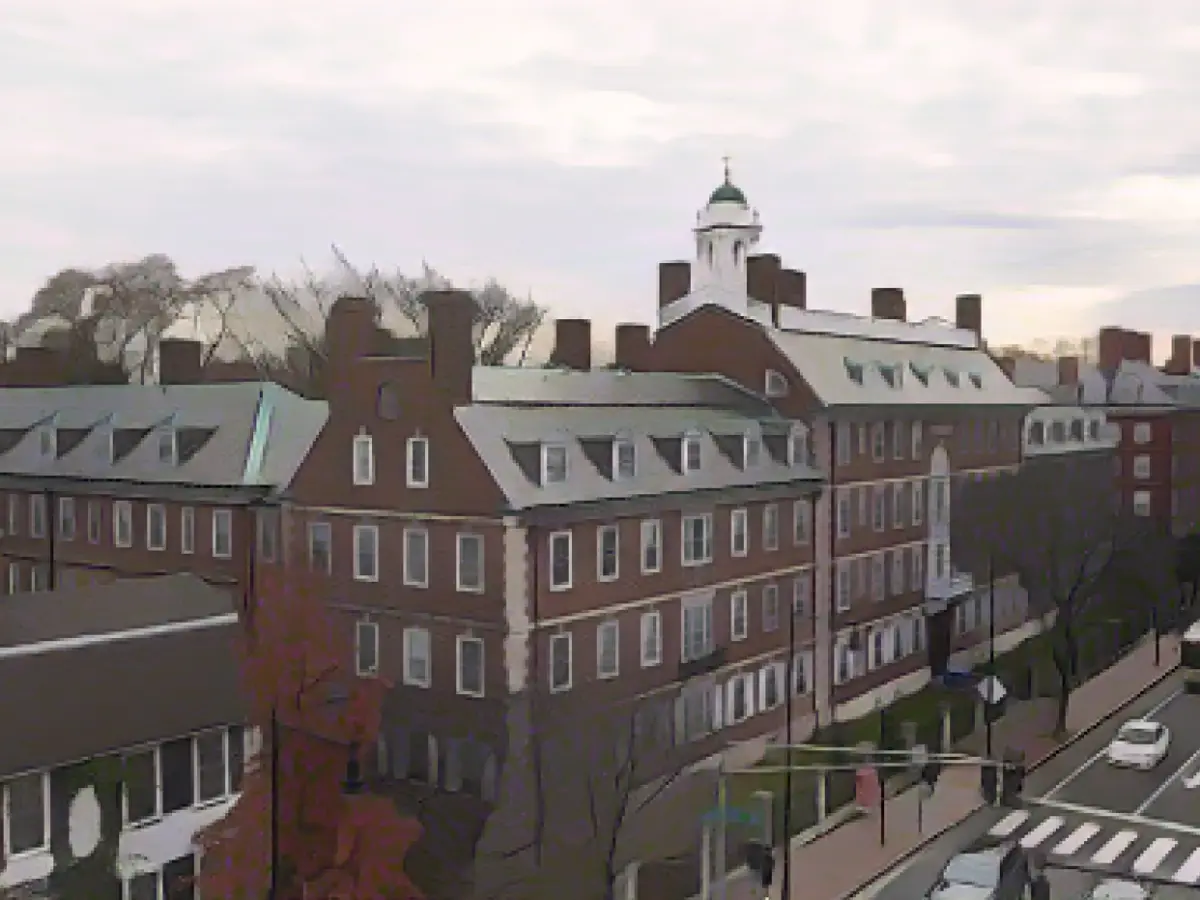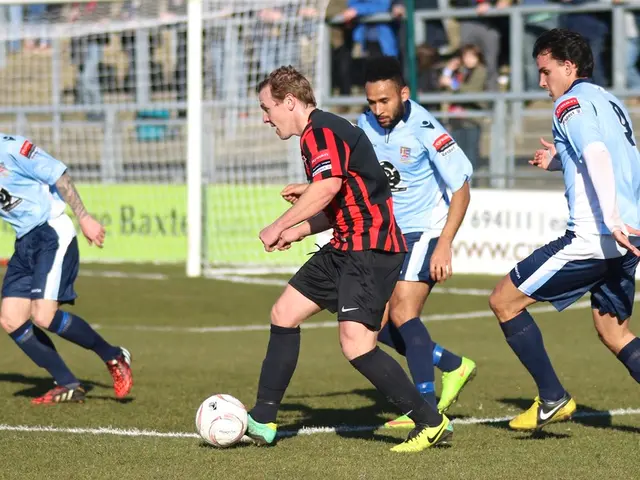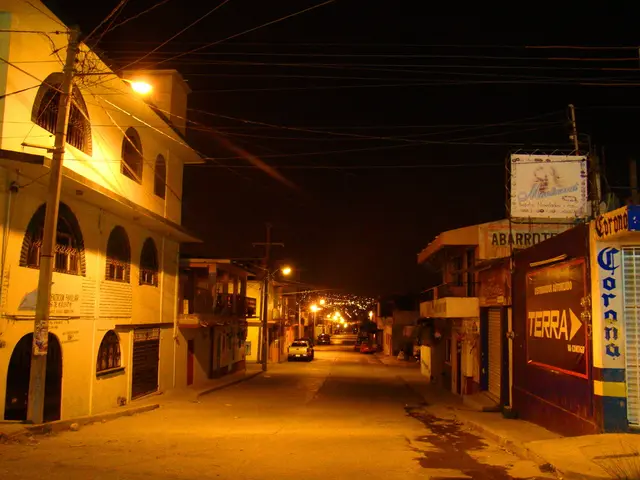Title: Harvard's Blemished History and the Battle Against Anti-Semitism
Rebekah Thompson
The recent uproar surrounding students and President Claudine Gay at Harvard University has shifted focus away from a crucial aspect of the situation: Harvard's responsibility to confront its own history when it comes to anti-Semitism. By examining dark choices made long before the students involved in the Israel-Hamas letter campaign were born, Harvard can embark on a transformative journey of accountability, rather than just waiting for an outcry to ignite change.
Harvard's history is not always as gleaming as its reputation suggests. The institution has been criticized for its past tendency to glorify individuals with questionable histories. From honoring those convicted of crimes against humanity, like the man behind the Nuremberg trials, to celebrating Nazi collaborators, the University's decisions have left some questioning its commitment to combatting anti-Semitism.
One of the most contentious cases involves Alfred Krupp, an industrialist responsible for overseeing the forced labor of tens of thousands in Auschwitz. Today, a fellowship and a professorship at Harvard bear his name, with funds provided by his foundation. Regrettably, Harvard played a role in whitewashing Krupp's legacy.
KZ inmates, prisoners of war, and hundreds of children were subject to deplorable living conditions and abuse under Krupp's rule. "Once they could no longer work, they were taken away by the SS and killed with poison gas," recounts the U.S. prosecutor's summary of the atrocity.
During and after World War II, American authorities brought war crimes charges against twelve Nazi doctors, commando units, and other high-ranking individuals in the Third Reich's genocide machine. Krupp's steel empire was a cornerstone of Germany's military industry, warranting one of the twelve trials dedicated to his crimes.
However, Krupp's sentence was reduced significantly by John J. McCloy, the U.S. High Commissioner for Germany and an alumnus of Harvard Law School. McCloy spearheaded the release of over two dozen convicted Nazis, including those directly involved in massacres.
After serving a few years in prison, Krupp's sentence was further mitigated, and some of his confiscated property was returned to him. As fate would have it, he repaid Harvard University's kindness by bequeathing his fortune to a foundation that donated $2 million to the university, establishing the Krupp Foundation Dissertation Research Fellowship and the Krupp Foundation Professorship for European Studies. The Krupp scholarship is also awarded to students at other institutions, such as MIT.
The only known recorded protest against accepting Krupp funding at Harvard, uncovered in 1974, came from the Harvard Crimson, the university's student newspaper. The Krupp Foundation's websites provided by Harvard fail to disclose that the grantee was a convicted war criminal or that the money came from weapons manufacturing and the Holocaust.
Amazingly, the Mother of Harvard's former president, Lawrence Bacow, was imprisoned in the very same concentration camp where the funding's origin lies. In a striking display of Harvard's seemingly discordant values, the university can boast the presidency of a son of Holocaust survivors while exploiting the suffering of the very same concentration camp where his mother suffered.
Harvard's handling of its own history pales in comparison to its treatment of Mykola Lebed, a Ukrainian scholar, who served as a leader for Ukrainian organizations during World War II. Despite being celebrated as an essential figure in Ukrainian history, Lebed was a key figure in the Ukrainian Nationalist Organization (OUN), which was allied with the Nazis and involved in the mass murder of Jews.
Lebed even served as a commander in the paramilitary wing of OUN, responsible for planning the “Volyn Massacre,” which saw between 70,000 and 100,000 Poles killed. Lebed's brutality reached new heights when his troops subjected Polish villagers, including children, to unspeakable horrors, rivaling even the atrocities perpetrated by Hamas.
An interesting twist: The United States' less formal military intelligence agency labeled Lebed as a "notorious sadist." But Lebed's reputation was reshaped upon arriving at Harvard's Ukrainian Research Institute (HURI), which houses Lebed's archives.
The question of Lebed's terrorism and mass murder went unmentioned in his description as a "fighter for freedom," stating that he became a Soviet-educated scholar with a photo of Lebed as a professor puffing on a pipe. This whitewashing of Lebed's past occurred at an Institute whose motto is "Truth."
In 2011, Volodymyr Viatrovych, a recipient of HURI's Mykola Lebed fellowship, became the director of the Ukrainian Institute for National Remembrance, a key state institution that interprets historical policies. Viatrovych's work was controversial because he endeavored to "sanitize" Lebed's past and other collaborationist agencies, a move that was widely criticized by both the U.S. Holocaust Memorial Museum and Israel.
If Harvard truly seeks to eliminate antisemitism on its campus, dedicating resources to righting wrongs of Nazi-era collaborationists would be a good place to start. Failing to do so risks turning the University's effort to combat prejudice into an absurd farce, as it continues to accept funds from controversial sources.
Collect your free weekly newsletter here
Sign up for the CNN Opinion newsletter Find us on Twitter & Facebook*
As Harvard looks into its indecisions that eventually led to the signing of the Israel-Hamas letter, it's important to consider the historical depth of these decisions. From failing to hold individuals accountable for Holocaust crimes to glorifying collaborationists, Harvard's history is fraught with questionable ties. Addressing these issues would not only serve justice but also put Harvard on the path to creating a more inclusive and respectful campus environment.
Enrichment Data:
Harvard has faced criticism for its historical involvement in honoring individuals with questionable backgrounds. Some of these dubious figures include:
- Ernst Nolte: The Harvard historian was controversial for his controversial statements on the Holocaust. Despite the backlash, he maintained his reputation as a scholar, which many historians and scholars saw as an example of anti-Semitic and Holocaust denial-adjacent views.
- Mykola Lebed: Often described as an essential figure in Ukrainian history, Lebed was the leader of Ukrainian organizations involved in the war, which partnered with the Nazis. Lebed served as a commander in the paramilitary wing of the Ukrainian Nationalist Organization (OUN), which collaborated with the Nazis in the Holocaust.
Recent developments in Harvard's battle against anti-Semitism:
- IHRA Definition Adoption: Harvard University has adopted the International Holocaust Remembrance Alliance’s (IHRA) definition of antisemitism, a step toward combating antisemitism on campus.
- Controversial Faculty Conduct: In February 2024, an anti-Zionist faculty group at Harvard shared an antisemitic cartoon, creating a further challenge in maintaining a campus environment free from antisemitic expressions.
- Resignation of Program Director: Jay Ulfelder, the program director of the Nonviolent Action Lab at Harvard's Ash Center for Democratic Governance and Innovation, resigned in protest over Harvard's new policies that aimed at combating antisemitism. Ulfelder criticized Harvard for adopting the IHRA definition and recognizing Zionism as a central component of Jewish identity.
References:







